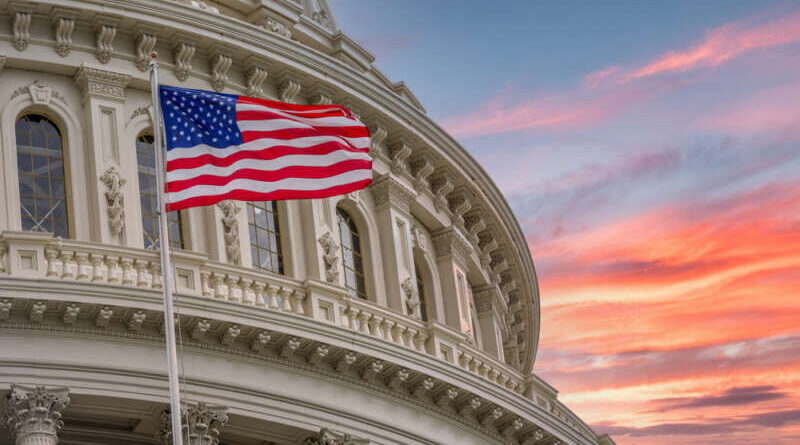California Steps Up With SB 53: New Law to Regulate AI Safety
California’s governing body, the state senate, recently endorsed a significant piece of legislation concerning the safety measures employed in the AI sector. The bill, referred to as SB 53, aims to enforce transparency on large AI organizations regarding their safety provisions. In addition to this, it introduces protections for whistleblowers within AI companies and establishes CalCompute, a public cloud meant to broaden computational access. The legislation has now progressed to the next step towards ratification, awaiting the approval or rejection of Governor Gavin Newsom.
There hasn’t been any public discourse by Governor Newsom concerning the newly proposed bill, SB 53. However, based on his past actions with similar legislation, he may scrutinize it closely. In the previous year, the governor refused a wider-ranging safety bill, selecting instead to affirm more specific laws addressing issues such as deepfakes. In doing so, he highlighted the necessity to shield the public from genuine threats that could arise with advancements in technology.
Despite signing more specific laws on AI safety, Governor Newsom had taken issue with the broader safety bill that he ultimately vetoed. His main critique was that the bill imposed undue, rigid standards on large models, with no regard to their usage or the data they processed. He expressed concern whether these models were deployed in environments with high stakes, were integral in key decision-making processes, or whether sensitive data was involved.
The framing of this new bill, SB 53, didn’t happen in isolation. It was shaped by the insight and recommendations from a group of AI policymakers, experts in the field. Their input provided the necessary expertise to draft a bill that would address the technological and societal implications of AI development and use.
The language of SB 53 underwent several changes to make it more specific and tailored to the industry’s needs. As it stands, companies involved in producing cutting-edge AI models, with an annual turnover under $500 million, must disclose only high-level safety procedures. Larger companies with a revenue surpassing the $500 million mark, however, are obligated to offer more comprehensive reports according to the bill.
The proposal of SB 53 was met with substantial backlash, predominantly from large tech entities and lobbying factions within Silicon Valley. One strikingly vocal entity, OpenAI, while carefully avoiding mentioning SB 53 directly, proposed an alternate compliancy framework based on existing federal and European safety codes, hoping to mitigate ‘duplication and inconsistencies’.
Andreessen Horowitz, another significant player in AI policy with an influential legal office, echoed OpenAI’s sentiments. They highlighted a growing concern that state-level AI bills such as the ones proposed in California and New York might cross constitutional boundaries by infringing upon the regulation of interstate trade.
Andreessen Horowitz’s co-founders previously implicated tech legislation as contributing to their endorsement of Donald Trump’s attempt at securing a second term as President. This sentiment was mirrored by the Trump administration and its proponents who, in light of such legislation, called for a moratorium on state-level AI regulation for a decade.
In contrast to the tech giants and lobbying groups opposing the bill, Anthropic, a leading AI firm, voiced support for SB 53. Jack Clark, co-founder of Anthropic, came forward to express this stance. He declared the company’s preference for a universal, federated norm governing AI but accepted the necessity of state-level legislation in the absence of such a standard.
Clark further emphasized that the proposed SB 53 is more than just a temporary fix. He portrayed the bill as a concrete template for the governance of AI, a blueprint that could guide the development of a technology that increasingly shapes our lives and cannot afford to be disregarded.
It is crucial to note that the proposed bill, SB 53, while being a statewide legislation, has implications and lessons that could inform initiatives on a national, if not global, level. The key principles it enforces — transparency, whistleblower protection, and access to computational resources — are fundamentally important in responsibly advancing AI technology.
In conclusion, the fate of SB 53 now lies in the hands of Governor Gavin Newsom. Despite facing contention from several tech companies, it has also received considerable support from select AI firms. Depending upon whether the governor views this legislation as viable and beneficial for society, it might help guide future AI safety and transparency protocols.
Ultimately, the success or defeat of SB 53 will be a significant landmark in the journey of AI regulations. The decision will surely spark further debates on the balance between innovation and safety, corporate freedom and societal responsibility. This comes as lawmakers across the country grapple with the complexities of regulating a rapidly evolving and increasingly influential technology sector.
It is a situation that serves as a fitting reminder of the importance of such regulations in the digital epoch we are stepping into – harnessing the potential of AI safely and responsibly, proposing comprehensive yet flexible regulatory standards, and considering the implications of such decisions not just for individual states, but for the nation and the world as a whole.

